
1 Paint, film-forming finishes, and penetrating oils will all protect your pieces from water and weathering, each with their own benefits and drawbacks.
When I was a kid, my dad made a pair of Adirondack chairs that sat out front of the old farmhouse I grew up in. Looking back, they added a quaintness to the house. They were attractive pieces, but in time the finish started to peel off. As other projects came up, refinishing the chairs was put on the backburner. Years went on and they slowly became gray and cracked. Those chairs still sit there, just outside the door, battered, beaten, and colorless.
Naturally, I’ve been haunted by those chairs since. I dread watching a piece of furniture that I put so much time and effort into making drain of color and waste away. Lucky for me, there’s a few options when it comes to finishing for the outdoors, all of which are capable of keeping my pieces safe and my mind free from worry.
First of all, what separates an outdoor finish from a standard indoor finish? The main difference is the additives that, while unnecessary for an indoor piece, will save the life of your outdoor furniture. As you’ve probably seen before (and I in my youthful horror witnessed) raw wood left out unprotected will become a rough, gray mess from the elements. The big three forces that take a toll on outdoor furniture are fungi, moisture, and ultra-violet (UV) light damage. While we can’t completely avoid all of these things, we can give ourselves a fighting chance with some careful planning.
This story is from the April 2022 edition of Popular Woodworking.
Start your 7-day Magzter GOLD free trial to access thousands of curated premium stories, and 9,000+ magazines and newspapers.
Already a subscriber ? Sign In
This story is from the April 2022 edition of Popular Woodworking.
Start your 7-day Magzter GOLD free trial to access thousands of curated premium stories, and 9,000+ magazines and newspapers.
Already a subscriber? Sign In
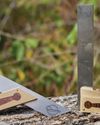
Ironbark Toolworks
Devon Campbell is designing and building world-class tools from his shop in Queensland.
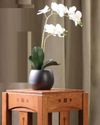
Fern Stand
This Charles Limbert table was sold as a fern stand, but it's a great addition to any home.
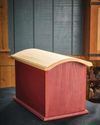
Norwegian Linen Chest
This small linen chest can be made in batches, and the lid presents some fun challenges during the process.

Bent Lamination Headphone Stand
Practice some mass-assembly techniques to create this elegant stand.

All About PPE
Safety is #1 in the workshop.
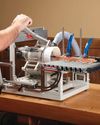
Joinery Machines
Joinery machines are much more than one-trick ponies. Here's an intro, and why you should consider adding one in your shop.
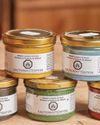
Linseed Paints
Linseed paint will change the way you approach painting a project, but this wonderful finish takes a different approach than modern paints.
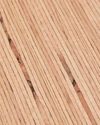
BauBuche
This laminated material comes from Germany, and is made of hundreds of layers of European beech.
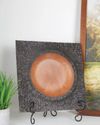
Square Platter with Textured Rim
Adding a bit of texture and colour to a square platter is a great way to dress up a simple design.
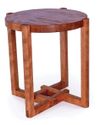
Excedo Side Table
With one board, you can put together this side table that packs in a bunch of great woodworking techniques.